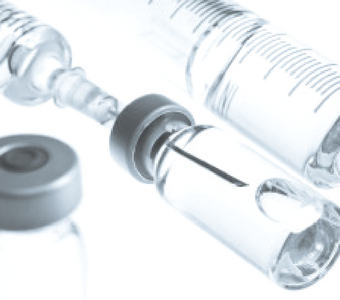On Tuesday, Vertex Pharmaceuticals (NASDAQ:VRTX) announced that while it would be advancing its developmental Hepatitis C (HCV) treatment, ALS-2200, into Phase II testing, ALS-2158 didn’t make the cut and development would be canceled. Even though researchers reported a favorable tolerability profile, in a seven-day Phase I study the drug failed to demonstrate enough anti-viral activity to warrant further clinical trials. Both drugs were licensed from Alios BioPharma in June of 2011 for $60M in upfront fees, plus possible future payments totaling $750M based on commercial milestones. The bad news outweighed the good in the eyes of investors; Vertex closed down 4% on Tuesday and continued to decline another 2%, to $55, on Wednesday afternoon.
More important than the ALS-2158 cancellation was the advancement of ALS-2200, a nucleotide polymerase inhibitor (“nuke”) that will now be moving into two Phase II trials. The terminology will be familiar to anyone following the HCV treatment segment in the last few months, as both Bristol-Myers Squibb (NYSE:BMY) and Idenix Pharmaceuticals (NASDAQ:IDIX) were forced by the FDA to suspend development of similar “nukes”, and in the case of BMY, cancel completely. We covered that story back in August. While Idenix’s drug, IDX-184, remains at a stand-still, the drug has not yet demonstrated any safety issues, and some analysts are guiding for the project to continue early next year.
We’ve been keeping a close eye on two companies that stand to benefit substantially from these cancellations. Achillion Pharmaceuticals’ (NASDAQ:ACHN) Hepatitis franchise is based on protease inhibitors and the NS5 drug class, neither of which have generated the concern from the FDA that nukes have. GS-7977, which is in Phase III development by Gilead (NASDAQ:GILD), currently leads the race to market a favorable oral HCV treatment. Although similar, BMY’s cancelled compound had a purine chemical structure, while GS-7977 and ALS-2200 are both uridine chemicals. The number of discarded HCV treatments continues growing while ACHN and GILD have made substantial gains in the last two months, up 59% and 14% respectively. IDIX continues to trade down, and subsequently, we’ve been recommending a long-short pair trade in the segment, which you can read about here.
Vertex is still in the game – its HCV drug Incivek was approved last year and the company guides for more than $1.1B in sales this year – but ALS-2200 will likely be a late-comer to the HCV market. Analysts expect the market for Hepatitis C therapies will grow to more than $12 billion by 2015. Although Vertex’s ALS-2158 cancellation might have lent strength to GILD and ACHN, the advancement of ALS-2200 resulted in mostly neutral price movement at Tuesday’s close for the competitors. Expect further interest in these companies, and the segment as a whole, as the American Association for the Study of Liver Diseases will hold its annual meeting in early November.



